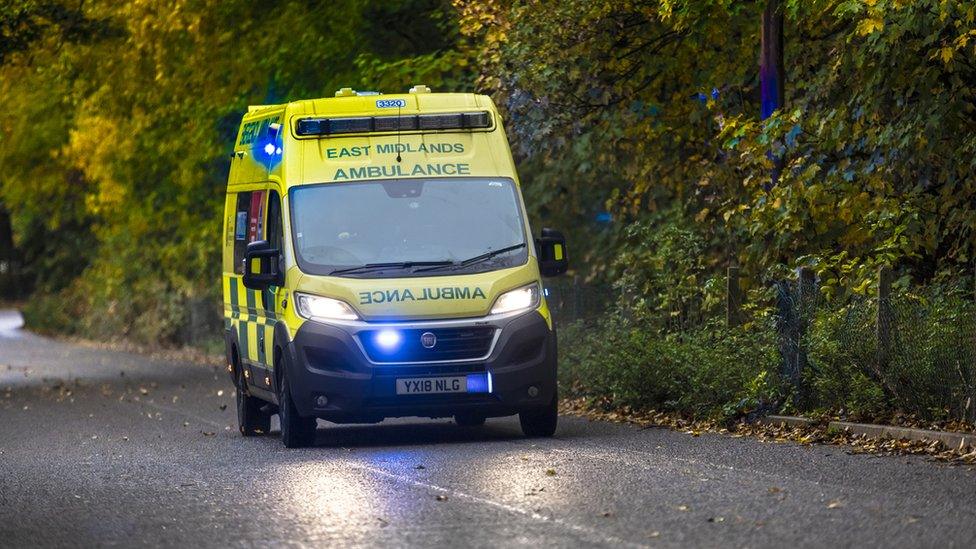Military to support East Midlands Ambulance Service during strike
- Published
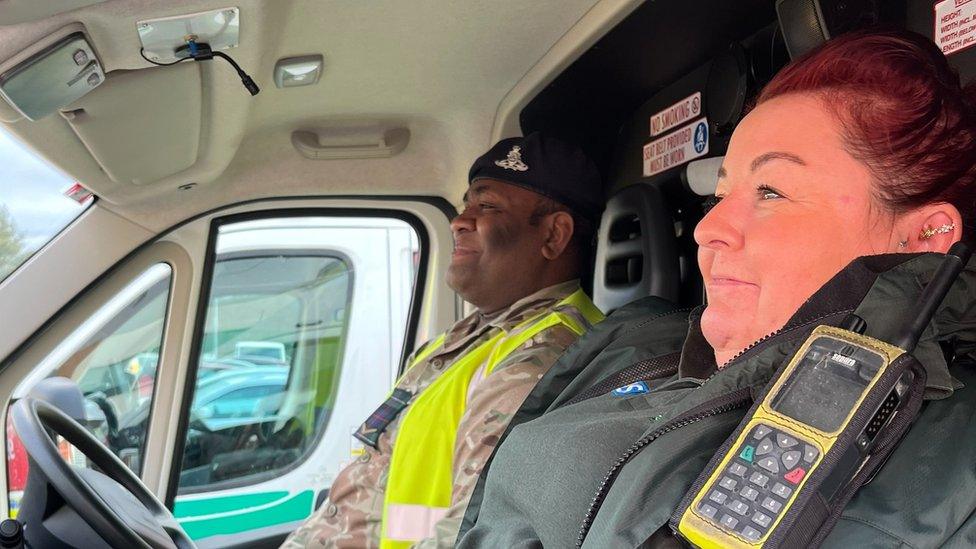
EMAS said the military would help to drive vehicles
The armed forces have been drafted in to support an ambulance service during the latest round of industrial action.
East Midlands Ambulance Service (EMAS) said strike action was planned for Monday and Tuesday.
The service, which covers Nottinghamshire, Leicestershire, Rutland, Lincolnshire and Derbyshire, said they were expecting up to 20 military staff to be available to help.
The service said they would not be used to respond to emergency 999 calls.
More than one union is expected to take part in the walk-out.
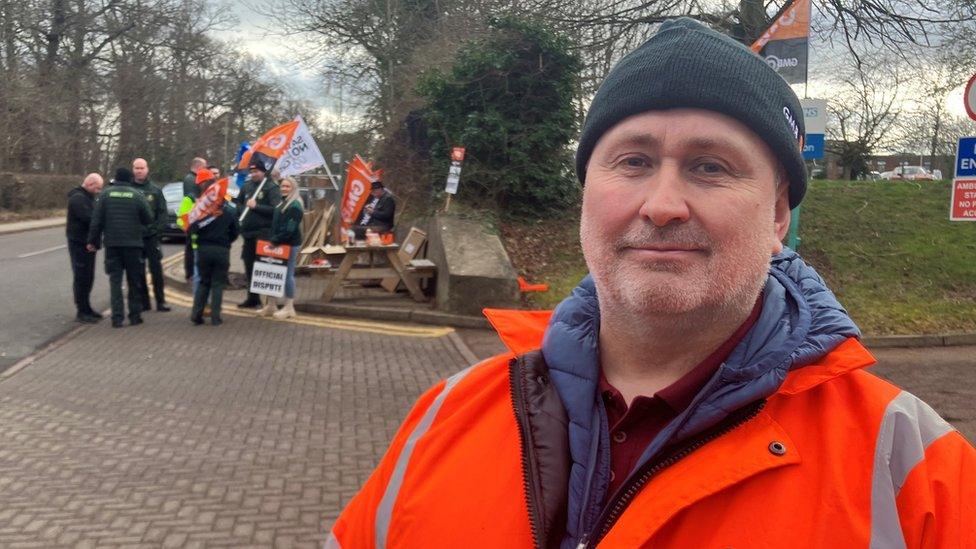
GMB organiser Jim Clarke said members remained "upbeat"
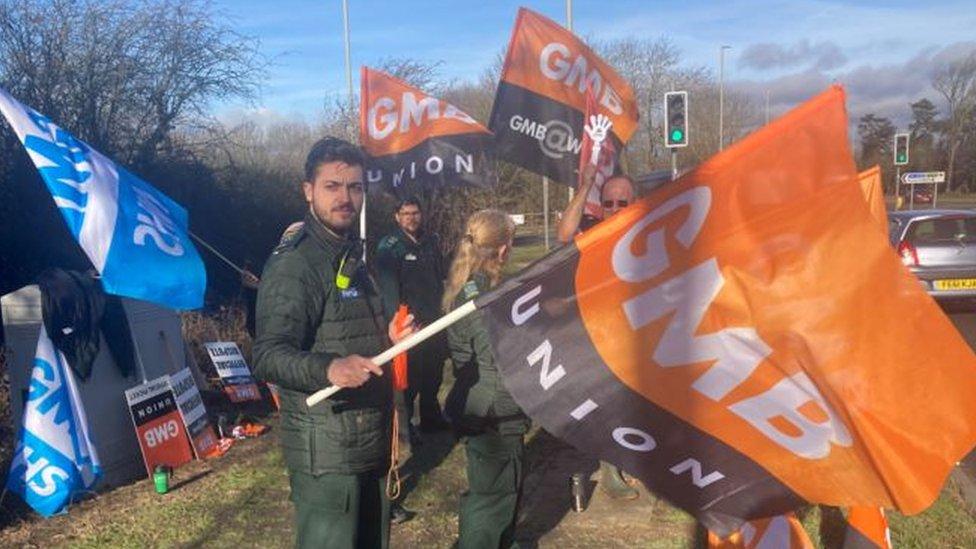
EMAS workers were at the picket line at the Gorse Hill station in Leicester
GMB organiser Jim Clarke, who was at the picket line at the Goodwood ambulance station in Leicester, said members of the union remained "upbeat" and wanted the "government to come to the table" and discuss pay.
He said: "It's down to EMAS if they want to use the military but they're not doing any blue light work. Our members are still responding to any life and death situations.
"Our membership is very determined [to carry on with the strikes]. This is about pay and also about the service. The NHS is in crisis."
EMAS said during the last round of strikes - on 6 and 7 February - demand on the service had been high.
They said the military would provide support by responding to non-emergency patients, helping to protect the limited number of ambulances available for seriously ill patients.
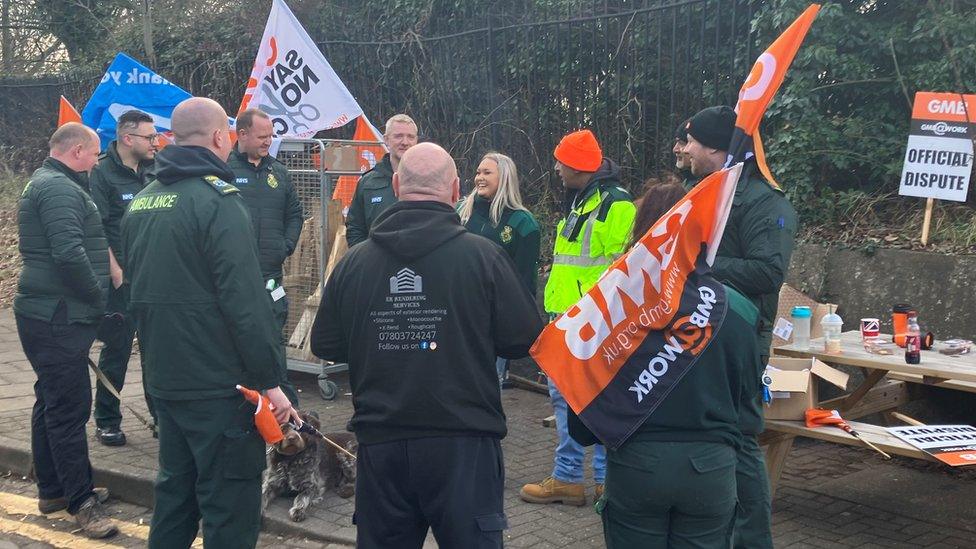
Unions said they were determined to carry on the strike
Ben Holdaway, director of operations at EMAS said: "We expect the industrial action period next week to be very challenging, and the implementation of military support has always been part of the NHS plans in case of increased and sustained pressure.
"They will not be used to respond to emergency 999 calls.
"Their role will be to drive vehicles in addition to the safe moving and handling of lower acuity patients and essential equipment.
"This will enable our emergency crews to focus on responding to life-threatening and very serious 999 calls."
He called on the public to use the service wisely.
EMAS previously requested help from military personnel in response to high demand and staff absence due to Covid in January 2022.

Follow BBC East Midlands on Facebook, external, on Twitter, external, or on Instagram, external. Send your story ideas to eastmidsnews@bbc.co.uk, external.
Related topics
- Published16 February 2023
